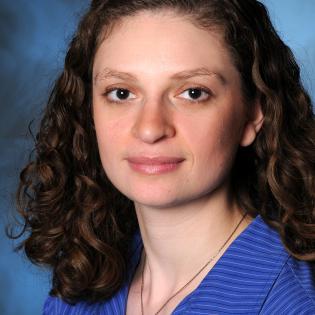Work hard, play hard
A few weeks ago, Diane Umufasha had her first taste of a college experience in history 152, “History of the West and the World”: “The first day I went in class, by noon I wanted to pack my things and go home. I didn’t expect this kind of thing to be happening,” said Umufasha, a senior at East Kentwood High School.
What the 19-year-old native of Rwanda, found so surprising about history 152 was the academic workload she found there. “Where I come from, we don’t usually read a lot. We go by what the professor says,” she said. Though stunned and a little daunted, Umufasha stayed on, and she got some help. “My classmates are helping me get used to this,” she said. “Practically everyone is helping me.”
[photo here]
Umufasha is one of 68 students from all over the U.S. who are spending a month of their summer at Calvin through the Entrada Scholars Program. Entrada is Spanish for “gateway,” and the Entrada Scholars Program is a month-long college immersion experience for ethnic minority students. From June 21 through July 16 when they graduate, the Entrada scholars are living in Calvin dorms, eating in Calvin dining halls, having devotions, going to church, playing basketball, playing Frisbee golf, hanging out.
Setting the bar
They’re also being scholars. “The expectation is that you will play hard, but you will work equally hard if not more,” said Tasha Paul, the associate director of Pre-College Programs who administers Entrada. Each scholar is taking an actual Calvin class—art, English, classics, biology, history, philosophy, psychology or communication arts and sciences—along with both their peers and other Calvin students.
Entrada provides academic coaches to help the scholars with the rigors of studying at a college level. “We have so many supports in place at the beginning, and we set the expectation pretty early that they’re here because we think they can do it,” said Paul.
"It’s pretty demanding,” said Daniel Camacho about taking a semester-length course condensed into three weeks. An 18-year-old senior from Uniondale High School in Long Island, New York, Camacho is enjoying the way his "Biological Science” course is taking him down some previously un-navigated paths of faith: “I was not presented with this way of thinking before,” he said. “We view nature as the creation of God, and we treat it as good stewards.”
The class is also taking him down some actual paths in Calvin’s Ecosystem Preserve, and his professor teaching the class about native and non-native species: “When I walk in a forest I just look at everything together … ,” Camacho said, “and he just provided profound insight into the inner workings of an ecosystem.”
Cultures and community
Entrada is showing Camacho another kind of diversity as well: “To put it in perspective: my RA is a Korean who spent most of his life in Ecuador,” he said. “We have students from Malaysia, a student from Denver, from Chicago, from Kansas. I think it’s great. It’s a great opportunity to learn from other cultures.” He likes the community aspect of Entrada, the way relationships form, the opportunities to share his faith with others. “We have a group here called the prayer warriors/monsters,” he said. “I myself participate in the student-led chapel on Sunday night.”
Camacho also likes the fun: shooting hoops in the Hoogenboom Recreation Center, climbing—halfway—up the climbing wall in the Spoelhof Fieldhouse Complex (“It was scary. I’m afraid of heights.”), and dancing the salsa for the first time, an activity he originally wanted to ditch: “We stayed there until the whole event ended. It was, like, ‘Turn the music off! You have to go!’”
The Entrada mix of studying hard and playing hard has a potent effect on the scholars, said Brian Staggs, the program’s assistant director for academic development. “I’m always amazed at what happens to the students in three weeks—how they grow academically, spiritually, environmentally,” said Staggs, who started as an academic coach in the program 11 years ago. “It’s inspiring to see motivated students work to their potential.”
[photo here]
A good number of them will bring that potential back to Calvin. Of the students who have graduated the program since 1991, 331 have enrolled a Calvin. Entrada graduates currently make up approximately 50 percent of the college’s African-American, Hispanic, Asian and Native American students. (Both Umufasha and Camacho are enrolled for the fall.)
Entrada is changing Calvin's cultural landscape, said Paul: “It’s a win-win for everybody involved. It’s an opportunity for students who may not have ever heard of Calvin College ... It’s a win for the families to have their students have a taste of college. … And it’s a win for Calvin to have these brilliant students, brilliant in many different ways … on campus.”
A total education
Stephanie Sandberg, a Calvin CAS professor of communication arts and science, agreed. Every year Sandberg teaches a session of CAS 140, and every year she teaches the second session because she knows that it will include Entrada students:
"It cuts right into my summer,” Sandberg said. “I could teach the first or third session, but I always choose this one … I really believe in the mission of what Entrada is about. The program, its sense of intentionality, understands that education is not just gaining ideas or technical skills. It’s gaining a sense of knowledge and understanding to take away from this place and renew and reform the planet.”
Before that happens, the Entrada scholars have to graduate, and that is a bittersweet time, said Paul: “It’s sad for them because they have to leave one another and they have formed such a close community in a short amount of time. It's a highlight every year ... Other people can get a glimpse of what we’ve experienced for this month … And to see the glow of the scholars and the pride they have in themselves.”
Said Umufasha: “Everything at Entrada is fun.”







